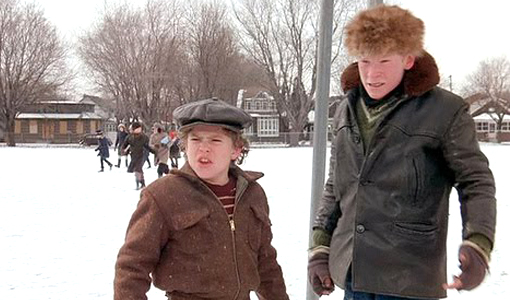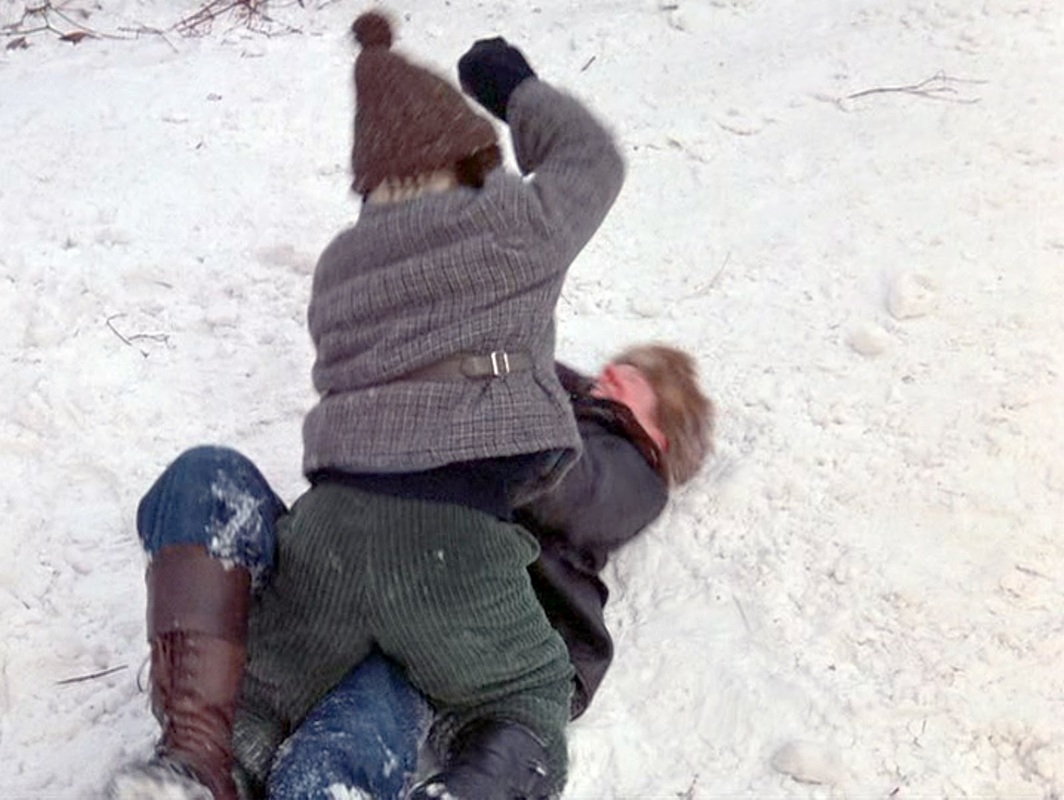| Teacher: Rusty Kennedy Series: Bible Stories |
Rusty's Notes | |
- Cup Bearer to the King
- The years of history that this book covers are 445-431 B.C., or perhaps a few years after that.
REBUILDING THE WALLS
NEHEMIAH 3
1 The high priest Eliashib and his fellow priests began rebuilding the Sheep Gate. They dedicated it and installed its doors. After building the wall to the Tower of the Hundred and the Tower of Hananel, they dedicated it. 2 The men of Jericho built next to Eliashib, and next to them Zaccur son of Imri built.
FISH GATE
3 The sons of Hassenaah built the Fish Gate. They built it with beams and installed its doors, bolts, and bars. 4 Next to them Meremoth son of Uriah, son of Hakkoz, made repairs. Beside them Meshullam son of Berechiah, son of Meshezabel, made repairs. Next to them Zadok son of Baana made repairs. 5 Beside them the Tekoites made repairs, but their nobles did not lift a finger to help their supervisors.
OLD GATE, BROAD WALL, AND TOWER OF THE OVENS
6 Joiada son of Paseah and Meshullam son of Besodeiah repaired the Old Gate. They built it with beams and installed its doors, bolts, and bars. 7 Next to them the repairs were done by Melatiah the Gibeonite, Jadon the Meronothite, and the men of Gibeon and Mizpah, who were under the authority, of the governor of the region west of the Euphrates River. 8 After him Uzziel son of Harhaiah, the goldsmith, made repairs, and next to him Hananiah son of the perfumer made repairs. They restored Jerusalem as far as the Broad Wall.
9 Next to them Rephaiah son of Hur, ruler of half the district of Jerusalem, made repairs. 10 After them Jedaiah son of Harumaph made repairs across from his house. Next to him Hattush the son of Hashabneiah made repairs. 11 Malchijah son of Harim and Hasshub son of Pahath-moab made repairs to another section, as well as to the Tower of the Ovens. 12 Beside him Shallum son of Hallohesh, ruler of half the district of Jerusalem, made repairs—he and his daughters.
VALLEY GATE, DUNG GATE, AND FOUNTAIN GATE
13 Hanun and the inhabitants of Zanoah repaired the Valley Gate. They rebuilt it and installed its doors, bolts, and bars, and repaired five hundred yards of the wall to the Dung Gate. 14 Malchijah son of Rechab, ruler of the district of Beth-haccherem, repaired the Dung Gate. He rebuilt it and installed its doors, bolts, and bars.
15 Shallun son of Col-hozeh, ruler of the district of Mizpah, repaired the Fountain Gate. He rebuilt it and roofed it. Then he installed its doors, bolts, and bars. He also made repairs to the wall of the Pool of Shelah near the king’s garden, as far as the stairs that descend from the city of David.
16 After him Nehemiah son of Azbuk, ruler of half the district of Beth-zur, made repairs up to a point opposite the tombs of David, as far as the artificial pool and the House of the Warriors. 17 Next to him the Levites made repairs under Rehum son of Bani. Beside him Hashabiah, ruler of half the district of Keilah, made repairs for his district. 18 After him their fellow Levites made repairs under Binnui son of Henadad, ruler of half the district of Keilah. 19 Next to him Ezer son of Jeshua, ruler of Mizpah, made repairs to another section opposite the ascent to the armory at the Angle.
THE ANGLE, WATER GATE, AND TOWER ON OPHEL
20 After him Baruch son of Zabbai diligently repaired another section, from the Angle to the door of the house of the high priest Eliashib. 21 Beside him Meremoth son of Uriah, son of Hakkoz, made repairs to another section, from the door of Eliashib’s house to the end of his house. 22 And next to him the priests from the surrounding area made repairs.
23 After them Benjamin and Hasshub made repairs opposite their house. Beside them Azariah son of Maaseiah, son of Ananiah, made repairs beside his house. 24 After him Binnui son of Henadad made repairs to another section, from the house of Azariah to the Angle and the corner. 25 Palal son of Uzai made repairs opposite the Angle and tower that juts out from the king’s upper palace,, by the courtyard of the guard. Beside him Pedaiah son of Parosh 26 and the temple servants living on Ophel made repairs opposite the Water Gate toward the east and the tower that juts out. 27 Next to him the Tekoites made repairs to another section from a point opposite the great tower that juts out, as far as the wall of Ophel.
HORSE GATE, INSPECTION GATE, AND SHEEP GATE
28 Each of the priests made repairs above the Horse Gate, each opposite his own house. 29 After them Zadok son of Immer made repairs opposite his house. And beside him Shemaiah son of Shecaniah, guard of the East Gate, made repairs. 30 Next to him Hananiah son of Shelemiah and Hanun the sixth son of Zalaph made repairs to another section.
After them Meshullam son of Berechiah made repairs opposite his room. 31 Next to him Malchijah, one of the goldsmiths, made repairs to the house of the temple servants and the merchants, opposite the Inspection Gate, and as far as the upstairs room on the corner. 32 The goldsmiths and merchants made repairs between the upstairs room on the corner and the Sheep Gate.[1]
PROGRESS IN SPITE OF OPPOSITION
NEHEMIAH 4
1 When Sanballat heard that we were rebuilding the wall, he became furious. He mocked the Jews 2 before his colleagues and the powerful men of Samaria and said, “What are these pathetic Jews doing? Can they restore it by themselves? Will they offer sacrifices? Will they ever finish it? Can they bring these burnt stones back to life from the mounds of rubble?” 3 Then Tobiah the Ammonite, who was beside him, said, “Indeed, even if a fox climbed up what they are building, he would break down their stone wall!”
- This is precisely what I told the campers would happen to them as soon as they got home last night.
- They could be attacked by their parents, siblings, friends, and others.
- The evil one doesn’t matter who he uses.
- This was Nehemiah’s prayer.
- This is the process we go through every year with students.
- Take them to camp and spend the first few days clearing their heads from the past year.
- Now start building the wall for the upcoming year.
- Prayer was important once again.
The strength of the laborer fails,
since there is so much rubble.
We will never be able
to rebuild the wall.
- Doubt will always be waiting to pounce.
- Nehemiah responded to these threats by increasing security, focusing the workers' attention again on God, and reminding them of their duty to protect their families and property.
- We need to be constantly reminded of our identity in Jesus.
- Realize that it is impossible to lead without facing opposition.
- It is essential that your first response to opposition be prayer.
- Prayer may not be all that is necessary if opposition intensifies.
SWORD AND TROWEL
15 When our enemies heard that we knew their scheme and that God had frustrated it, every one of us returned to his own work on the wall. 16 From that day on, half of my men did the work while the other half held spears, shields, bows, and armor. The officers supported all the people of Judah, 17 who were rebuilding the wall.
- Each person had their assignment based on skill and abilities.
- Nehemiah continued to encourage the workers. He made arrangements so that, if the enemy attacked any portion of the wall, trumpeters would announce it and summon the other workers to help those who were being attacked.
- This is basically what our Sunday Gatherings are… the sounding of the trumpets for war.
Nehemiah 5 highlights the importance of justice, compassion, and leadership in addressing social issues.
- Nehemiah's actions demonstrate his commitment to God's principles and his care for the well-being of the community, setting a standard for righteous leadership.
ATTEMPTS TO DISCOURAGE THE BUILDERS
NEHEMIAH 6
1 When Sanballat, Tobiah, Geshem the Arab, and the rest of our enemies heard that I had rebuilt the wall and that no gap was left in it—though at that time I had not installed the doors in the city gates--2 Sanballat and Geshem sent me a message: “Come, let’s meet together in the villages of the Ono Valley.” They were planning to harm me.
- The plain of Ono, to which Nehemiah's adversaries invited him for a meeting, probably lay about 25 miles west and a little north of Jerusalem, near the town of Ashdod and Judah's border with Samaria.
- Israel's present international airport at Lod, just east of Tel Aviv on the Mediterranean coast, is very close to this site.
- It was in a kind of no-man's land between Judah and Samaria.
- If Nehemiah had accepted this invitation, he would have been many miles from Jerusalem for at least two days.
- This would have given the people of the land an opportunity to attack the Jewish workmen.
- The evil one is relentless.
- Stay focused.
It is reported among the nations—and Geshem agrees—that you and the Jews plan to rebel. This is the reason you are building the wall. According to these reports, you are to become their king 7 and have even set up the prophets in Jerusalem to proclaim on your behalf, “There is a king in Judah.” These rumors will be heard by the king. So come, let’s confer together.
8 Then I replied to him, “There is nothing to these rumors you are spreading; you are inventing them in your own mind.”
- Another tactic of the evil one.
But now, my God, strengthen my hands.
- Return to prayer
ATTEMPTS TO INTIMIDATE NEHEMIAH
10 I went to the house of Shemaiah son of Delaiah, son of Mehetabel, who was restricted to his house. He said:
Let’s meet at the house of God,
inside the temple.
Let’s shut the temple doors
because they’re coming to kill you.
They’re coming to kill you tonight!
11 But I said, “Should a man like me run away? How can someone like me enter the temple and live? I will not go.” 12 I realized that God had not sent him, because of the prophecy he spoke against me. Tobiah and Sanballat had hired him. 13 He was hired, so that I would be intimidated, do as he suggested, sin, and get a bad reputation, in order that they could discredit me.
14 My God, remember Tobiah and Sanballat for what they have done, and also the prophetess Noadiah and the other prophets who wanted to intimidate me.
- Prayer for the fourth time.
THE WALL COMPLETED
15 The wall was completed in fifty-two days, on the twenty-fifth day of the month Elul. 16 When all our enemies heard this, all the surrounding nations were intimidated and lost their confidence, for they realized that this task had been accomplished by our God.
- It was a God-Sized task accomplished through men and women.
- Even after the spectacular accomplishment of rebuilding the wall, Nehemiah was still being attacked.
- Any attempt to fulfill God's desires will almost certainly draw opposition from God's enemies.
- "If you start building, you will soon be battling; so, be prepared!"
- "Whenever the saints say, 'Let us arise and build,' the enemy says, 'Let us arise and oppose.'
- There is no triumph without trouble.
Note the following lessons in leadership from Nehemiah 1 through 6:
- A leader must be a person of prayer (ch. 1)
- Have a vision (2:1-3), and be a wise planner (2:4-8).
- He must inspire his followers (2:11-20), organize his task (ch. 3), and combine faith and common sense (ch. 4).
[1] Christian Standard Bible (Nashville, TN: Holman Bible Publishers, 2020), Ne 3:1–32.
[2] Christian Standard Bible (Nashville, TN: Holman Bible Publishers, 2020), Ne 4:1–23.
[3] Christian Standard Bible (Nashville, TN: Holman Bible Publishers, 2020), Ne 6:1–19.





 RSS Feed
RSS Feed